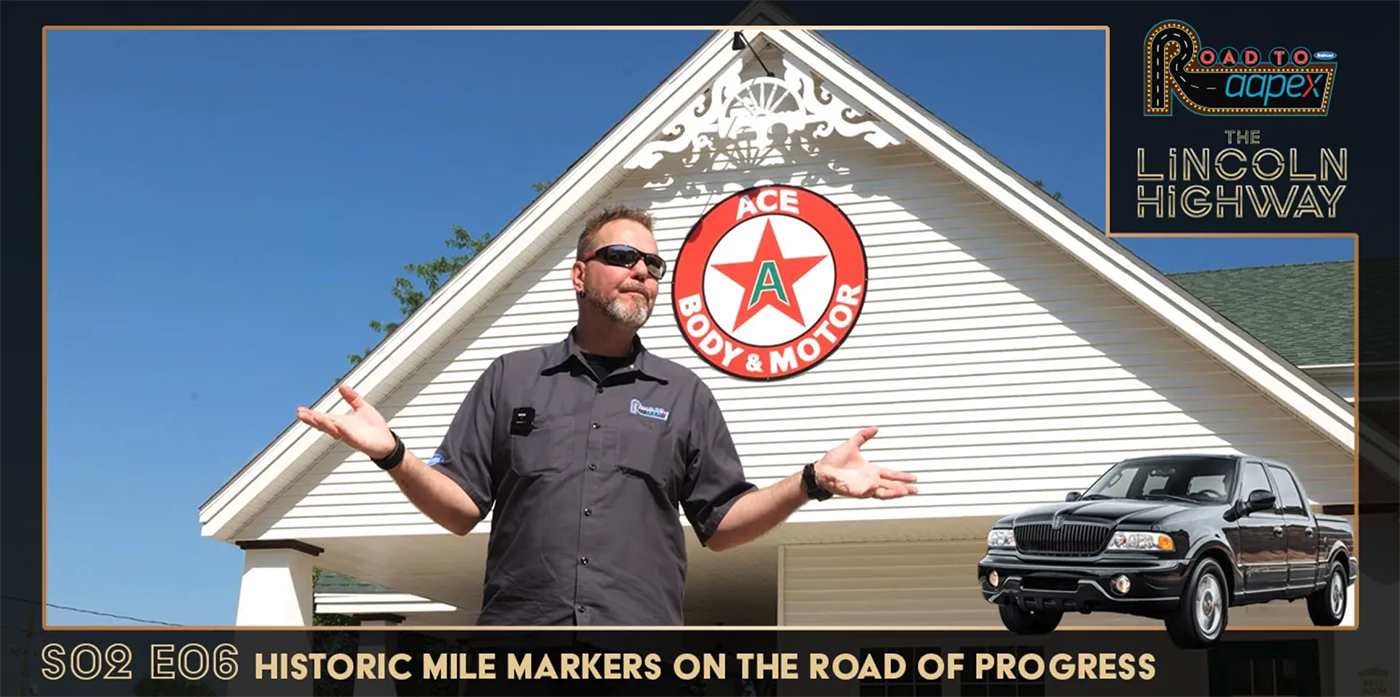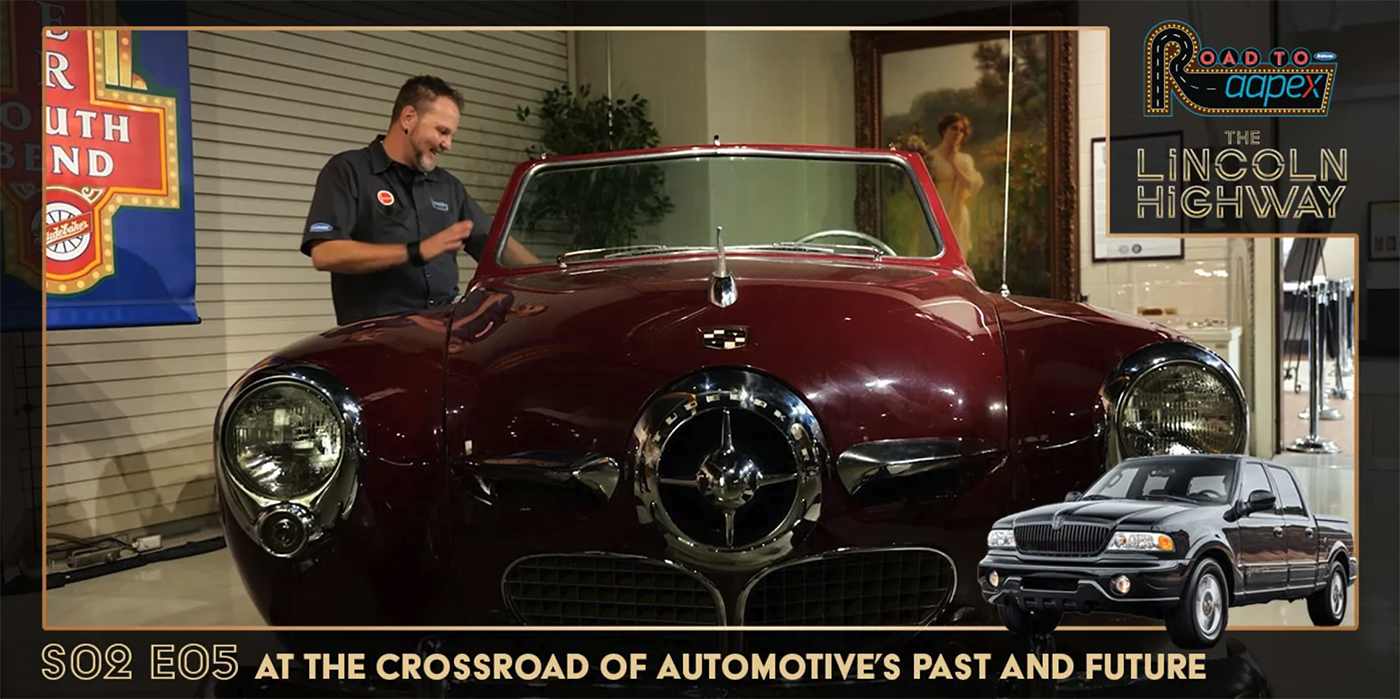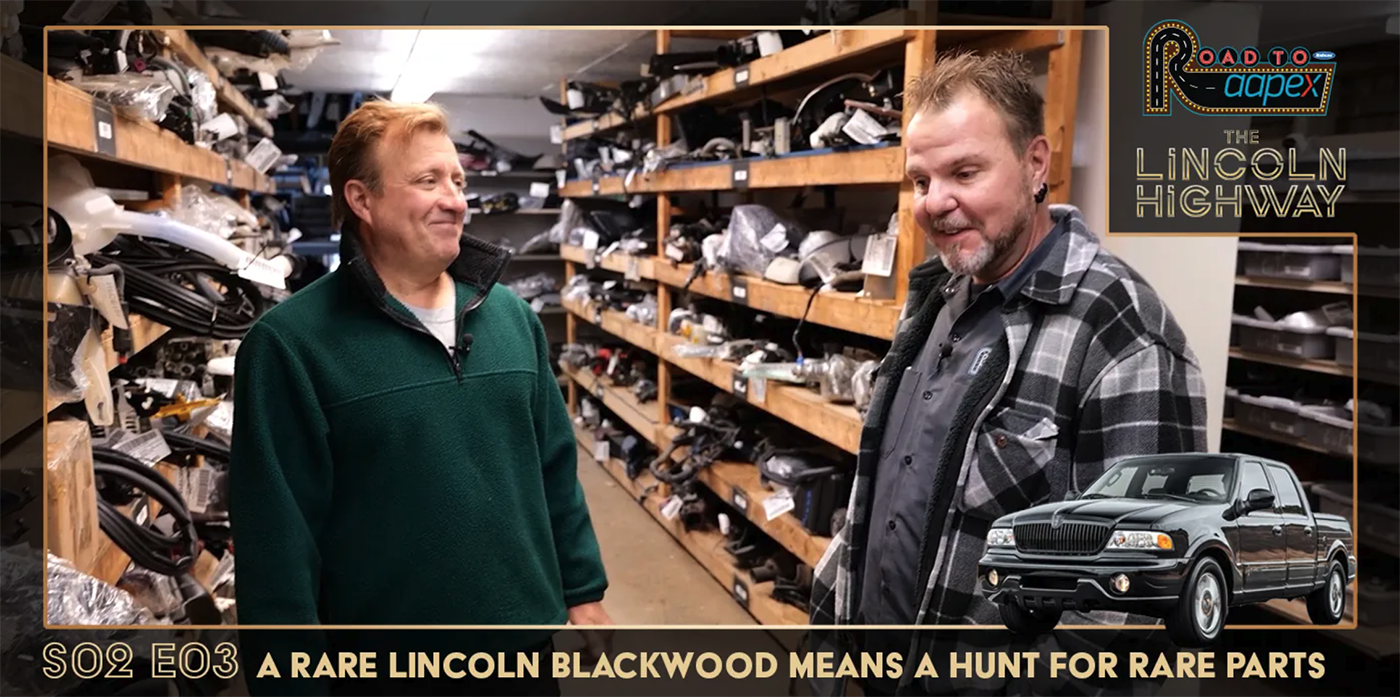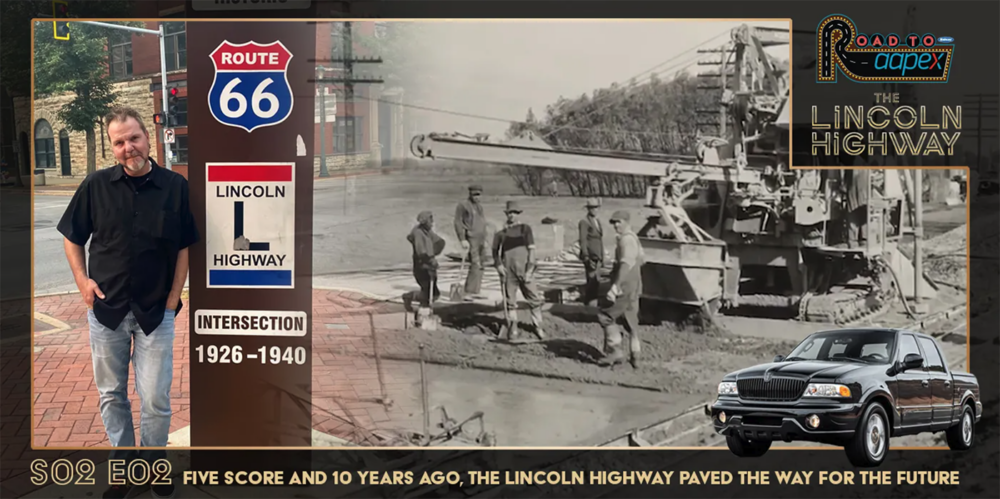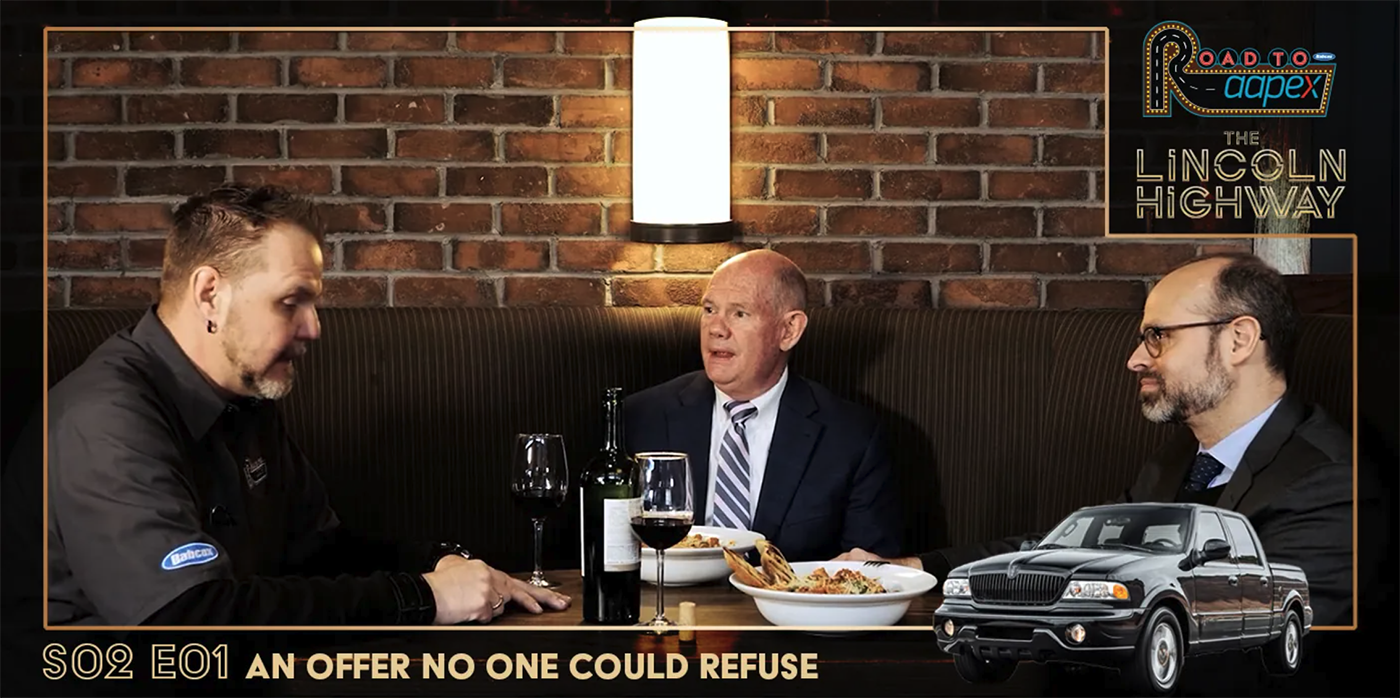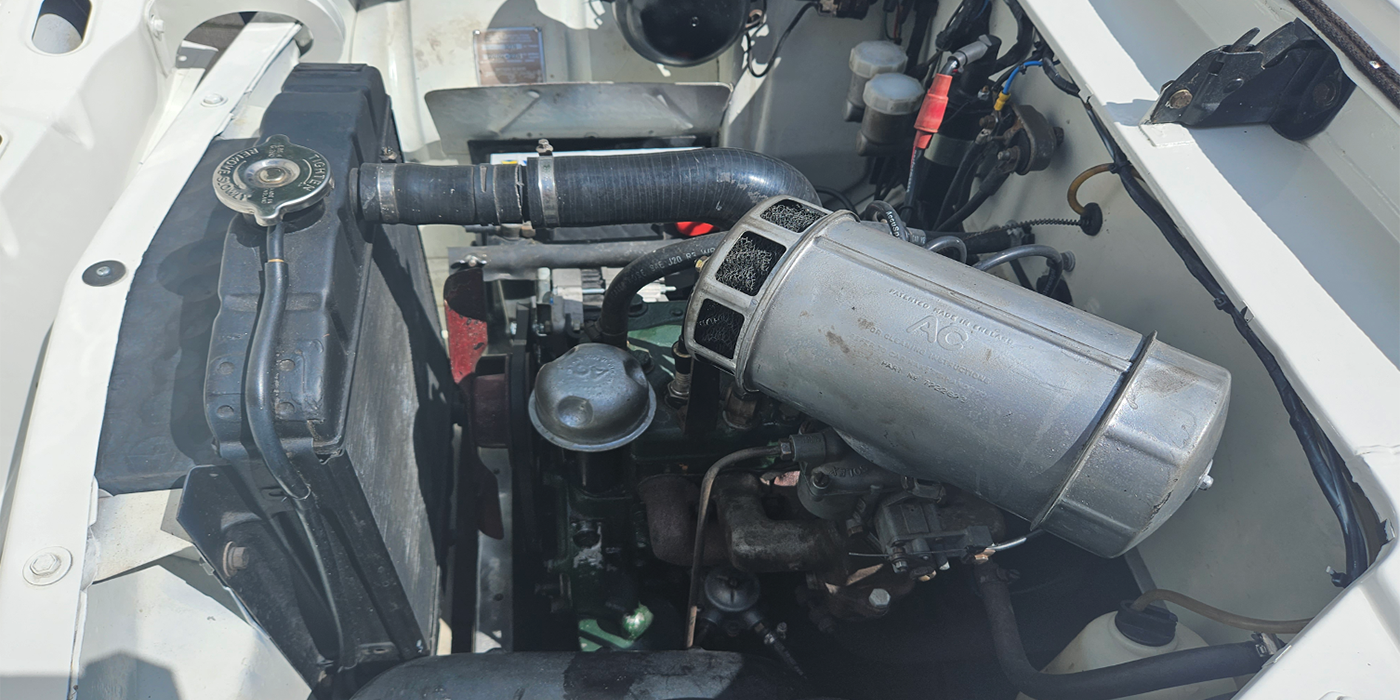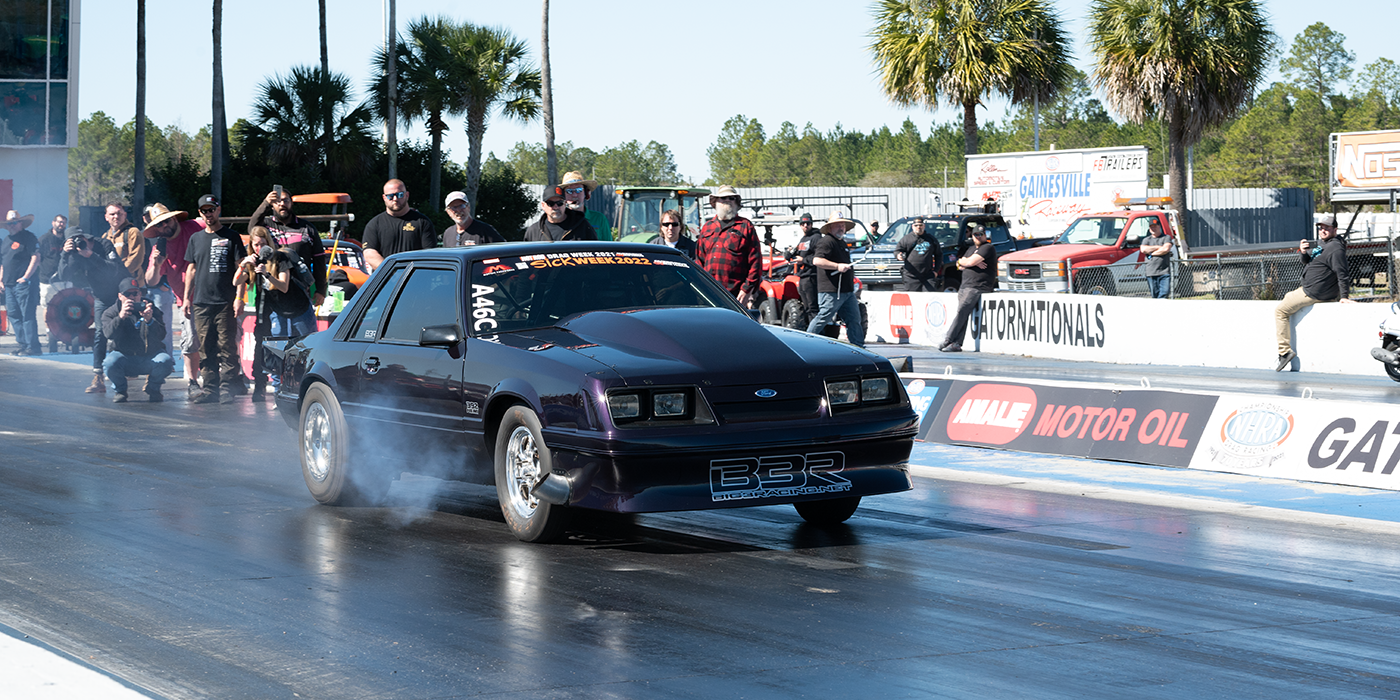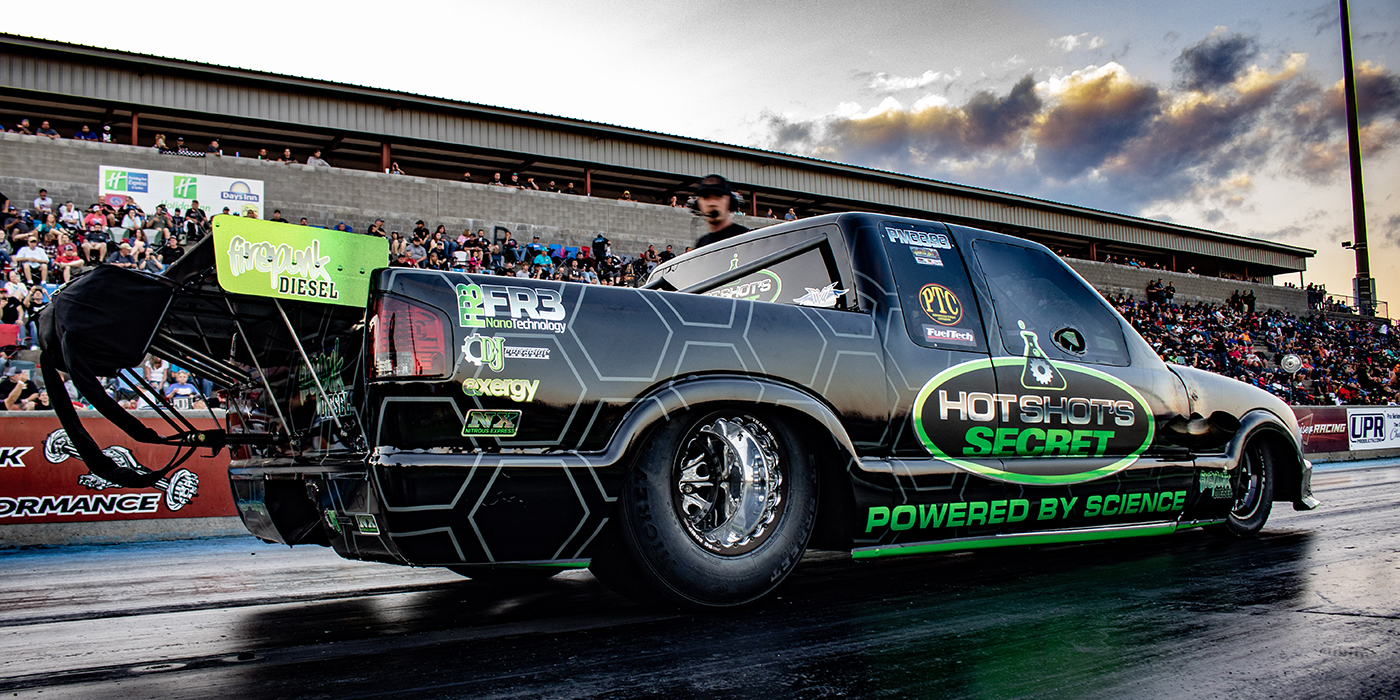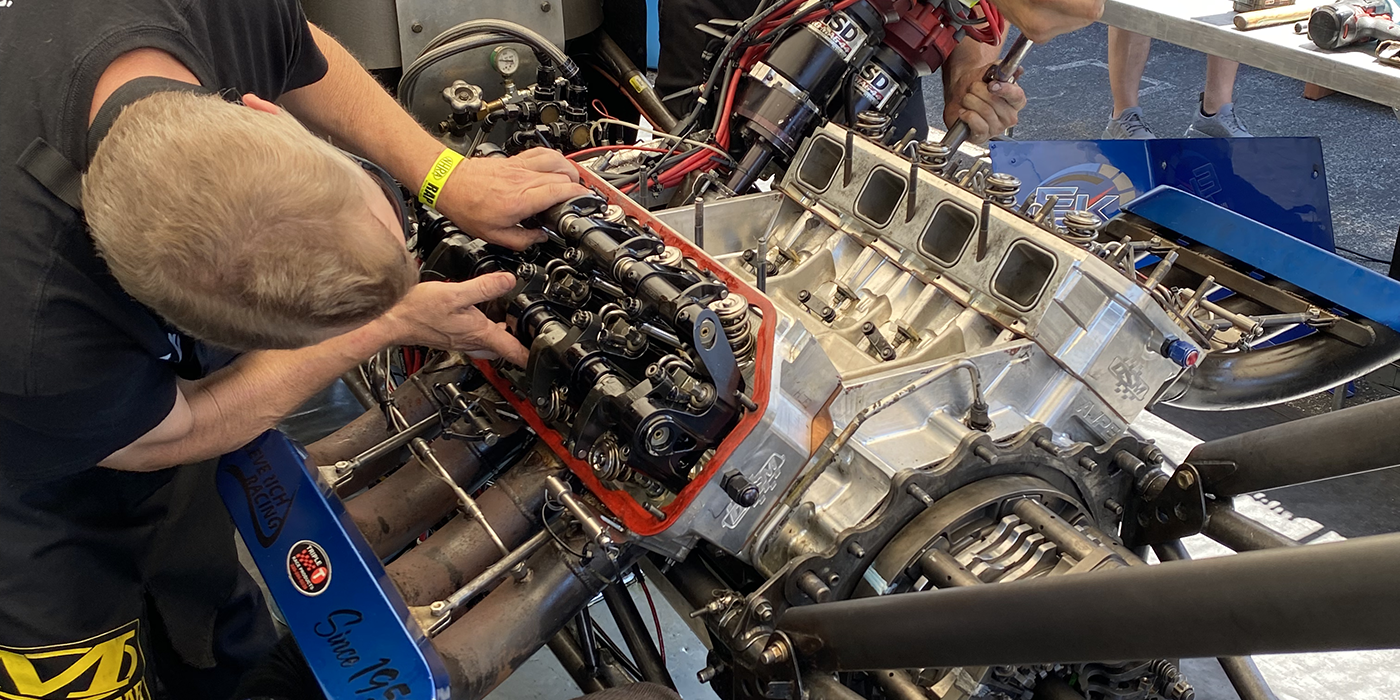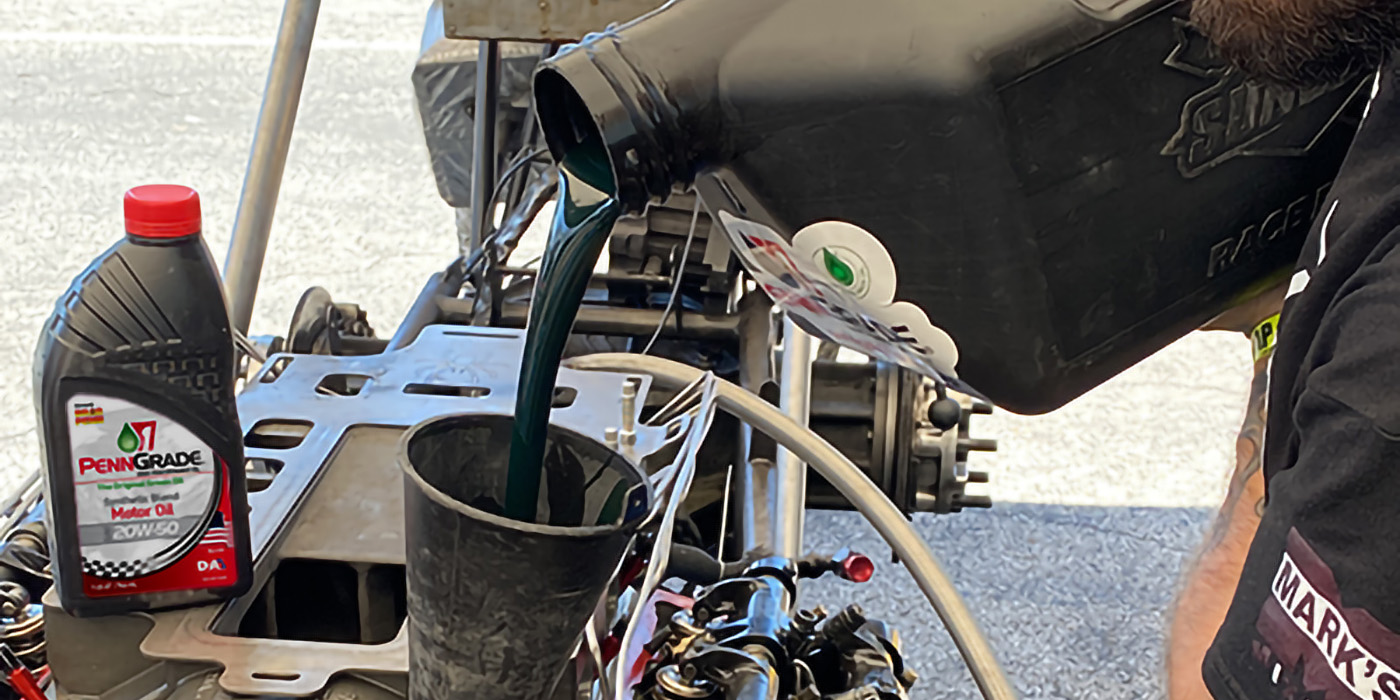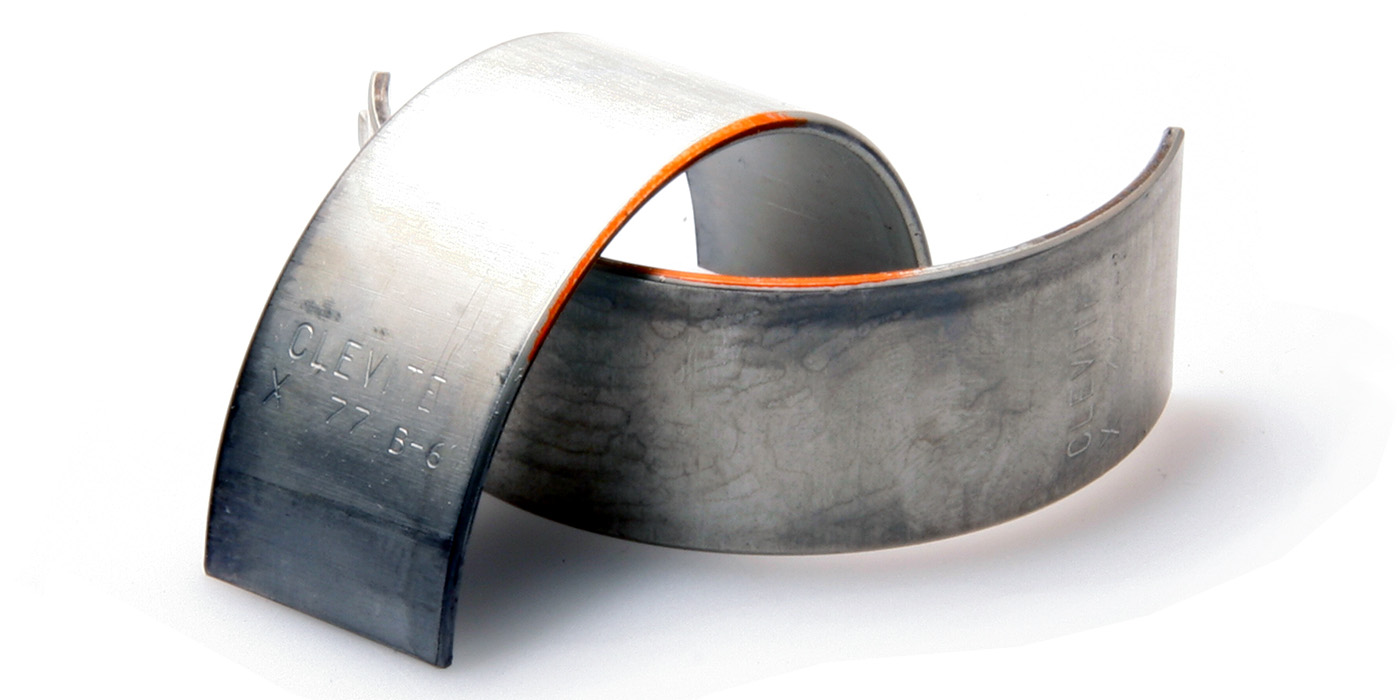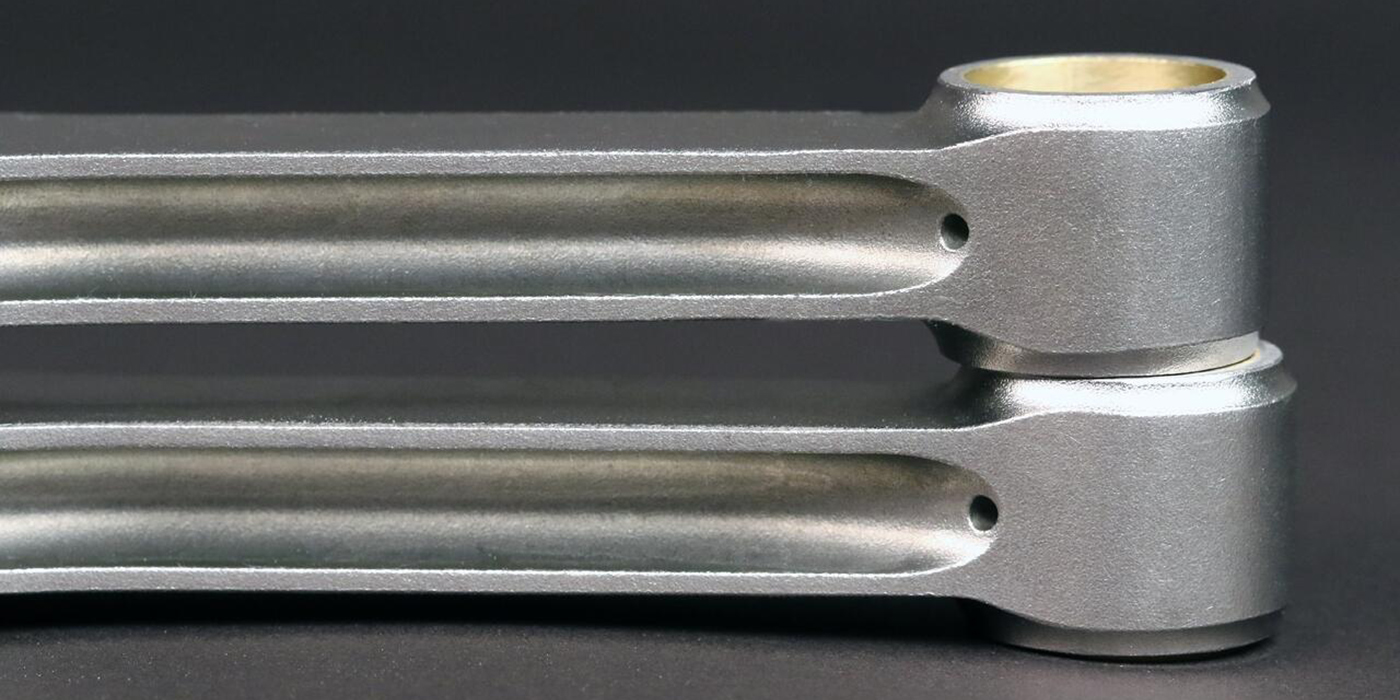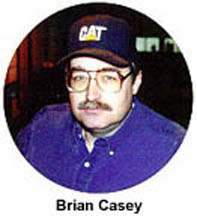
What do you do after graduating from Worcester
Polytechnic Institute in Worcester, MA, with a degree in management
engineering? Why, run a heavy duty machine shop and service repair
business, of course. Well, maybe not always. But that is the way
it has turned out for Brian Casey, incoming Engine Rebuilders
Association (AERA) chairman and one of the guiding hands at Motor
Service, Inc., located in Auburn, MA.
Casey is following in the footsteps of both
his father and grandfather who also were AERA board members. Casey’s
grandfather, Peter, started the business back in 1928 in half
of a store front in Worcester where he used the local post office
as his parts depot and an adjacent alley for changing out piston
rings.
Today Peter is 98 years old and still sometimes
brings friends into the shop to talk about "how things started"
and "how they are today." Brian, his father, John, and
his brother, Kevin, run the day-to-day operations of Motor Service.
John is president of the company, Kevin runs the office and Brian
oversees the machine shop and service repair sides of the business.
Anyone who has been in the independent heavy
duty machine shop business for any length of time knows that the
last eight to 10 years have seen dramatic changes in competition
for heavy duty shop work and parts replacement. During the late
1980s a countrywide recession, as well as excess inventory and
over capacity of the heavy duty OEMs, served as a catalyst for
the OEM’s entry into the remanufactured replacement parts business.
They’ve been tough competitors ever since,
providing independent machine shops with more than enough competitive
pressures in the form of national warranties, liberal core return
policies, and competitively priced authorized rebuilt engines,
in addition to offering a variety of other component parts ranging
from fuel pumps to turbochargers to cylinder heads.
So how has Motor Service adapted to market
changes? In a nutshell, through diversification and expanded OEM
affiliations. For example, during the early 1980s, Motor Service’s
machine, service and parts business was almost entirely Detroit
Diesel related. Today the company is an authorized service repair
and sales outlet for numerous OEMs from Detroit to Caterpillar
to Cummins, Perkins, Mitsubishi, Onan and Allison transmissions,
to name just a few.
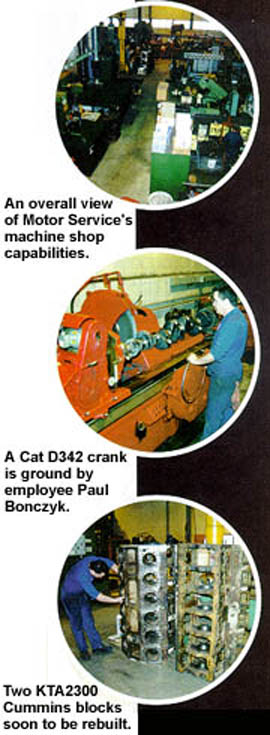
"I wonder how, in the future, independent
shops will find enough business without being affiliated with
an OEM," Brian Casey offered. Casey says that sales of his
own shop’s machining services is the first option he likes to
offer the customer. However, realistically, he says he’d rather
be able to sell an OEM remanufactured engine or cylinder head
rather than miss a sale he otherwise would be unable to get.
"It provides us with sales that we otherwise
would be unable to get," said Casey of his OEM reman products
sales. "When the OEM had only new replacement products to
sell, the independent machine shop could provide great cost savings
to the customer. But the market has changed dramatically. In light
of the OEM warranty, price and quality, it’s often hard to convince
the customer that you’ve added any value with your own remanufactured
parts or machining services."
The dramatic market changes Casey is referring
to include OEM reman parts that are generally of good quality,
priced competitively and that carry a national warranty. And the
OEM seems committed to staying in the reman aftermarket, as Casey
noted that today more than 50% of Caterpillar replacement part
sales are provided through Cat’s own remanufactured products.
But perhaps even more significant is the extended
life span of heavy duty diesel engines. Today, 500,000 to a million
miles are not unrealistic expectations for the life of an over-the-road
heavy duty diesel engine before major work is required.
"We used to get the diesel engine machine
work from a local Mack fleet," explained Casey. "Every
200,000 to 300,000 miles they would tear down the engines and
we’d do the machine work. We don’t get that type of work anymore.
They don’t need to do that type of preventive maintenance any
longer."
While customer expectations for quality, performance
and durability are higher than they’ve ever been, Casey says when
machine work is needed the customer usually expects to get it
at competitive pricing.
"It seems like almost every customer that
we have today is running lean," he explained. "Whether
it’s a mail carrier, a trucking company, city fleet or off-road
construction operation, pricing is always key." Casey said
that many of his accounts will seek two or three different bids
on a job before getting the work done. That has required a lot
of effort educating the customer.
"It’s very difficult to bid a job today,"
explained Casey. "You have to spend the time to educate the
customer about what is included in your bid and find out if a
lower bid includes all the work that is included in your own bid.
However, sometimes it still isn’t enough." It’s very frustrating,
he said, when a customer asks you to bid a job a certain way and
you do, and then you find out later that he accepted a lower bid
from a competitor that isn’t going to do the work the way it was
originally bid out.
"Because of all of the consolidations
and competition, pricing will remain key," said Casey. He
explained that with his own machine shop products and services,
he feels he must base his pricing on the OEM’s aftermarket products’
pricing.
"With the OEMs you really need to understand
their pricing," he explained. "We can’t always get what
we should on everything that we do. The OEM pricing often dictates
what we must price at. In the 1980s my average markup was about
40% on a fleet price. Today it’s about 25%. We get squeezed on
some products and on others we make a very good margin."
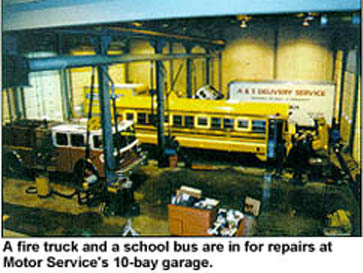
Depending on the time of year, Motor Service’s
shop work comes from a variety of sources including OEM distributors,
construction companies, bus fleets, municipal equipment and other
machine shops. Jobs are sourced from markets that range from marine
to industrial to the retail customer.
The geographical market that the shop draws
from consists primarily of the surrounding four state area including
Rhode Island, New York, Vermont and New Hampshire. In addition
to standard in-house machining services that cover a wide array
of jobs, the shop also does various on-site repairs such as line
boring and cylinder boring of over-the-road, construction and
marine applications.
Motor Service runs a mean and lean operation
with just 10 employees to handle its machine shop, service garage
and new truck sales divisions. Casey notes that his shop employees
are all capable of running a half dozen different machines, and
several also do double duty as service technicians in the 10-bay
repair garage.
Casey says that several years ago when things
really got tough, the company made the decision that if it was
going to survive and its employees were going to make a comfortable
living, they would have to learn how to do a variety of work,
and that’s just what they’ve done. Apparently the employees have
also seen the wisdom in that decision as almost none have been
with the company less than 10 years.
Of the approximately $2.5 million in annual
company sales, about 65% is accounted for through parts and vehicle
service work, 30% through the machine shop and the balance through
new Mitsubishi Fuso and GMC medium duty truck sales.
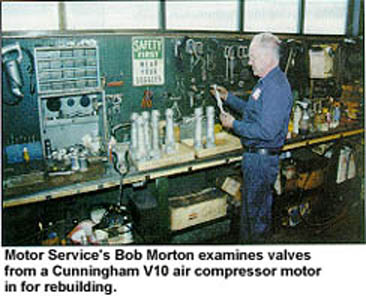
Casey notes that sales of new trucks in themselves
are not a high profit opportunity. However, the 40 to 60 new trucks
the company sells annually, does bring parts and service, as well
as machine shop work to the company, which does represent higher
margins.
Motor Service is also switching its focus to
retail rather than fleet customers for its truck sales. It’s trying
to devote more emphasis to selling "features and benefits"
rather than price, which often is the primary issue for larger
fleet buyers. "We want to sell trucks to people who will
bring them back to us for their parts and service requirements,"
said Casey.
Casey said Motor Service purchased the two
truck dealerships about 10 years ago in an effort to diversify
the company. Today truck sales come from about a 30-mile radius.
"We feel we are going to be able to grow our truck sales
in the future," said Casey. "And vehicle parts and service
and the machine shop will benefit from the improved volume of
work in our bays."
Motor Service’s 10-bay service garage is one
of the largest in the area. Work is drawn in from a surrounding
65-mile radius. Major accounts include service contracts with
companies such as Ryder and Penske, eight different school bus
fleets, OEM dealerships, new truck sales customers and municipalities.
As with the machine shop, OEM technology has
required better trained technicians and the availability of information
to properly diagnose and repair modern drivetrains and vehicle
systems.
"In the machine shop we have to be more
concerned with such things as surface finishes, specific tolerances
and the way component parts must fit to each other," said
Brian. When it comes to repairing trucks and buses in the service
bays he says that this concern translates into having the proper
diagnostic tooling and direct access to OEM information.
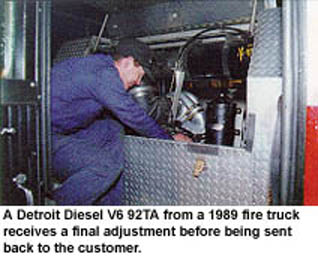
"We probably have $18,000 to $20,000 invested
just in diagnostic equipment for the various OEM engines and powertrains
that we service," said Casey. Cummins, Cat, GMC, DDC, Mitsubishi,
each OEM has its own diagnostic software."
While Casey says that such equipment is expensive
and that costs can also be high in terms of training technicians
to use it properly, he notes that it is the most direct and efficient
way to service vehicle powertrains and operating systems.
"Today’s electronics provide the history
of the performance of an engine or vehicle system and allow us
to determine the cause of a failure or potential failure,"
explained Casey. "We also employ personal computers and software
that enable us to reprogram ECMs to perform updates and to reprogram
system parameters that the OEM has determined are needed. We are
doing more and more of this all the time."
Motor Service is also linked on-line to most
of the OEMs it is affiliated with. Having a direct computer link
to the OEM expedites warranty service and payment. It also facilitates
more efficient parts ordering, product updates and allows for
direct training sessions with the OEM, all of which leads to better
cash flow and a happier customer.
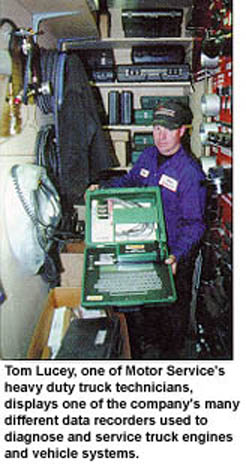
For the present, the mix of machine shop, service
garage and new truck dealerships seems to be working to the benefit
of the entire company. Casey notes that when he advertises his
new truck and service repair operations, he also simultaneously
promotes the machine shop and the services which it provides.
Casey admits, however, that perhaps Motor Service
could do a better job of marketing the machine shop. He said that
he is considering hiring an outside salesperson or two to look
for business that the shop could provide services for. "It’s
probably the best way to expand our shop business, although we
do get a lot of referrals from the customers we already do business
with," he said.
Although Motor Service may look to expand its
machine shop market customer base over the near future, it will
continue to use its ties to the OEMs to strengthen its parts and
service offerings to its customers.
"Customers today expect a competitive
warranty, good price and service," said Casey. "Having
the machine shop, the OEM reman lines, and the service bays allows
us to provide that."

